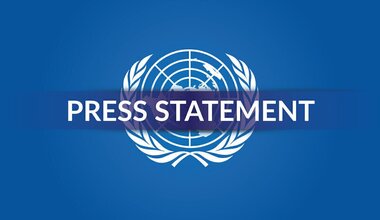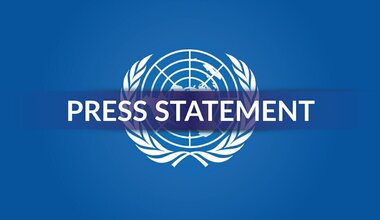Somalia’s first female prosecutors change the face of justice
Mogadishu - In a historic move aimed at enhancing the delivery of justice, Somalia has recently appointed six female prosecutors. They are the first women to be appointed prosecutors since the collapse of the central government in 1991.
The new prosecutors were trained in Somalia over a period of 7 months by the Office of the Attorney-General, as part of the general effort at improving access to justice.
According to Ms Amal, one of the new appointees, the inclusion of women in the legal profession will help to address challenges faced by all Somalis, women in particular. Ms Amal, who has studied Sharia law at Mogadishu University, believes that their biggest challenge will be to fight corruption and favouritism, which she said are major obstacles to accessing justice in Somalia.
“The reason why I studied law and worked hard to be among the first female prosecutors in my country was mainly to ensure justice for all, because we have caused so much injustice to each other as Somalis. It is about time we ended this impunity, corruption, nepotism and favouritism, if we are to prosper as a nation, because there can never be peace without justice and that is why we are determined to be the defenders of justice and to lead by example,” she said.
Mr Abbi Ali, a senior official from the Ministry of Justice, said that the new prosecutors are expected to boost confidence in the justice system among women.
“These 6 ladies were the first female prosecutors in Somalia’s history. We are really excited about it, and we are confident they will serve their people with dedication because they are really enthusiastic about bringing a change because they were born, raised and educated in the country and have witnessed a lot, so they are really focused on seeing that justice is served to all in accordance with the law,” said Mr Ali.
“They will definitely positively impact on the overall work of the Ministry of Justice and we are really hopeful that they will do a lot,” he added.
The United Nations Assistance Mission in Somalia (UNSOM), through its Rule of Law and Security Institutions Group (ROLSIG), has worked closely with the different institutions in the Somali justice sector, providing the necessary support to strengthen them.
Mitch Dufresne, the Officer-in-Charge of ROLSIG and Director Joint Justice and Corrections Section UNSOM, noted that it is a good sign that Somalia is recognizing the value of women as professionals in public life and utilizing all its available human resources to revamp its state agencies.
Ms Dufresne said that having women in decision-making positions will enhance the delivery of justice in the country. “Gender balance can contribute in a positive way with women in decision-making positions to influence delivery of justice to the population,” she explained.
UNSOM supports the Somalia rule-of-law program jointly with other UN agencies that include UNDP, UNHCR, UNOPS, UNODC, UNFPA, UNICEF, UN Women, the UN Office for Human Rights and the International Organization for Migration (IOM).
The support is extended through the Somalia Development and Reconstruction Facility (SDRF) and covers capacity-building for rule-of-law institutions, some of which include police, justice, corrections services, and the Office of the Attorney-General.
 UN
UN




